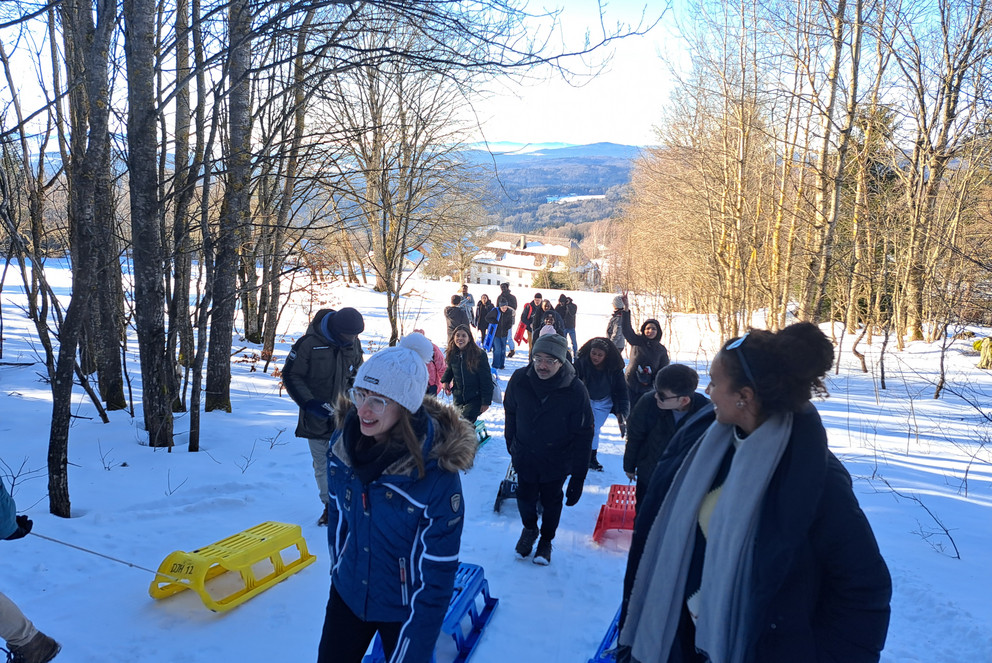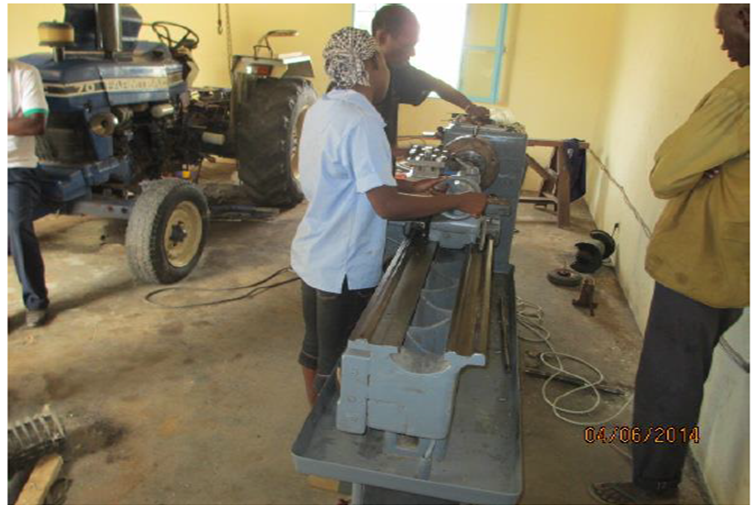A large-scale pilot experiment on low-cost soil-test kits to enhance sustainable farming among small holders in Indonesia
A large-scale pilot experiment on low-cost soil-test kits to enhance sustainable farming among small holders in Indonesia (DBU)
Although the intensive use of fertilisers and pesticides has contributed to an unprecedented reduction in poverty worldwide, it is also associated with negative impacts on soils, water resources, human health and biodiversity. Globally, about one third of all soils are moderately to severely damaged and no longer resilient to the increasing climate change. Meanwhile, the scientific community has developed sustainable organic farming methods that still promise high yields; the latter is important in order not to jeopardise the successes of poverty reduction and to provide the necessary incentives for farmers to adopt these methods. So far, however, only a fraction of agricultural land worldwide is cultivated sustainably and with long-term soil health in mind. Therefore, in addition to increased environmental awareness, the use of modern technologies is also required.
Farming technologies must be adapted in a way that they can also be used in developing and emerging countries, where most of the agriculture takes place on small, low-tech farms with little financial resources and little training. One promising technology in this regard is simple and inexpensive soil testing based on digital technology, which is suitable for optimising the use of organic fertilisers on the one hand and improving the quality of soils and groundwater on the other hand.

The aim of this project is to investigate how such soil tests can be introduced in rural areas to make a significant contribution to improving soils, preventing erosion and protecting groundwater in Indonesia. According to estimates, 107 million hectares of land in Indonesia are currently affected by acidification, caused, among other things, by decades of massive over-fertilisation with ammonium-based fertilisers, mostly urea. This particularly affects the research region of this project, the island of Java with about 140 million inhabitants. The continuous intensive and often unbalanced use of chemical fertilisers has also greatly reduced soil organic matter.
The present project will test the potential of simple, low-cost soil tests in a large randomised field experiment. About 1,200 farmers from 60 villages will participate in the experiment to generate robust, causal results on the effectiveness of this technology under real-life conditions. The soil tests will be combined with hands-on training on sustainable soil quality management. The training of the farmers as well as the technical-logistical support is provided by the renowned NGOs Alliansi Organis Indonesia (AOI) and Tani Organik Merapi (TOM), which are well established in the project region. Our approach is easily replicable and could also act as an incentive in other parts of the world, especially in other developing and emerging countries, to reduce the use of environmentally harmful fertiliser or to combat over-fertilisation without reducing the productivity of the farms. In that way, environmental protection and poverty reduction can be achieved at the same time.
The target group for the results of the project are local political decision-makers and international cooperation organisations, including the German Society for International Cooperation (GIZ) and the German Federal Ministry for Economic Cooperation and Development (BMZ).
See also: DBU, Digital Research Magazine.
| Research Team in Passau |
|
|---|---|
| Project Partners in Indonesia | Universitas Gadjah Mada (UGM)
|



![[Translate to Englisch:] [Translate to Englisch:]](/fileadmin/_processed_/9/3/csm_AdobeStock_791664914_Preview_590752aa5a.jpeg)

